South Africa is highly likely to remain open to foreign investment in the long term, despite pressure on its business-friendly president to step down.
This assessment was issued to clients of Dragonfly’s Security Intelligence & Analysis Service (SIAS) on 22 November 2022.
- The ANC is due to hold elections for senior leadership positions, including its president, from 16-20 December
- We forecast that President Cyril Ramaphosa will probably retain the presidency and that he is likely to continue his pro-business reform agenda into 2023
- The ANC is likely to lose its majority in parliament at a general election in 2024, forcing it to seek a coalition
Parliament is scheduled to debate whether to impeach President Cyril Ramaphosa on 6 December. Figures that plan to challenge him for the ANC presidency at the party’s electoral conference, due 16-20 December, have also called for him to resign. Although he is likely to survive these attempts to remove him, Ramaphosa’s camp is divided. So we assess the incoming ANC leadership will probably be weak and so struggle to root out corruption from the state and party.
Parliament is unlikely to impeach Ramaphosa on 6 December. In recent months, opposition parties have launched an independent parliamentary panel to determine if a money laundering case involving Ramaphosa has merit. Regardless of the outcome, the ANC parliamentary majority would most probably prevent an impeachment. Rather than a real attempt to remove him from office, this debate seems to be an electioneering tactic used by his rivals at the ANC elections, as well as those parties preparing for the 2024 general elections.
We continue to assess that there is a reasonably high chance of Ramaphosa being re-elected as ANC president. Three other presidential candidates are linked to a formidable faction associated with former president Jacob Zuma. But the faction has struggled to unify without Zuma at the helm, seemingly at the cost of its popularity within the party. Local media reports on the ANC nomination process this week suggest that Ramaphosa features prominently among favourites. Zweli Mkhize is the second most popular. Trailing behind are Nkosasa Dlamini-Zuma and Lindiwe Sisulu.
A weak ANC in 2023
An ANC leadership compromise consisting of Ramaphosa and Zuma factions is the most likely outcome of the upcoming elections. Divisions are evident in Ramaphosa’s camp; they have struggled to present a list of candidates for leadership positions, with some more willing to work with Zuma factions. Those divisions, together with the ANC’s large rural voter base, have tipped some provinces, like Kwa-Zulu Natal, towards the Zuma factions. Still, we assess that ANC treasurer Paul Mashatile is likely to facilitate compromise; he is one of the few candidates featuring strongly across all factions.
We doubt that less business-friendly policies will emerge over the next year. Ramaphosa has taken some steps to implement his mandate; he removed regulations and barriers to private investment, particularly in the renewable energy sector. And even if ANC infighting worsens, opposing factions seem to have watered down what they have called their ‘Radical Economic Transformation’ agenda. For example, Mashatile among others has pushed back on plans to nationalise the Reserve Bank. And he has recently held a series of meetings to present himself to businesses.
There are consistent signs that the ANC’s ability to govern effectively is waning and will continue to do so into 2023. The party is financially weak; it is struggling to run essential functions such as paying staff and funding ANC electoral work. Ahead of the general elections in 2024, a new opinion poll published in November repeated previous findings that public support for the party is declining. Although we forecast the ANC will probably remain the largest party in parliament after the next election, it is likely to lose its majority, forcing it into a coalition for the first time since it came to power in 1994.
Image: Members of the ruling African National Congress (ANC) march to their headquarters in Johannesburg, South Africa, on 15 July 2022; Photo by Phill Magakoe/AFP via Getty Images.
South Africa is highly likely to remain open to foreign investment in the long term, despite pressure on its business-friendly president to step down.







